Uncategorized
Crypto Daybook Americas: Trump’s Reserve Shock Revives Cautious $100K BTC Hope

By Omkar Godbole (All times ET unless indicated otherwise)
The flip-flopping nature of the crypto market is on full display as the sentiment on social media has changed from «it’s so over» to «we are so back» in just 24 hours, thanks to President Donald Trump naming BTC, ETH, XRP, SOL and ADA as candidates for the long-promised strategic crypto reserve.
The announcement has lifted valuations across the board, with market leader bitcoin reinstating $89,000 and $91,000 as key support levels, and the options market shows renewed interest in the $100K bets.
Still, some analysts are calling for caution. «Crypto is back on track with a positive momentum and enthusiasm from investors. However, it’s important to note that no concrete actions have been taken yet, and a continued lack of immediate catalysts could lead to another slowly correcting market,» Valentin Fournier, analyst at BRN, said in an email.
That’s sensible because tough questions may be asked once the initial excitement about the announcement subsides. For instance, Trump still needs congressional approval for this basket of reserves. While BTC makes sense as a reserve asset, having reportedly found a place in investor portfolios as digital gold, including XRP, ETH, SOL, and ADA raises concerns, as some of these tokens barely have links to economic activity.
It begs the question: Why would a government facing debt issues invest in assets with minimal ties to the economy and are unlikely to generate a significant multiplier effect and help improve debt-to-GDP ratios?
Plus, allegations of insider trading related to Trump’s Sunday announcement might dent sentiment. On Sunday, an unidentified trader deployed roughly $6 million in a 50x leveraged long bet on BTC and ETH and booked out with a profit of $6.8 million. «A U.S. crypto reserve could be a great boon to the asset class, but investors may feel more confident if significant measures are taken to resolve the fear of insider meddling,» Mena Theodorou, co-founder at crypto exchange Coinstash, said, referring to the alleged insider trading.
For now, it’s risk-on, and a similar positive action on Wall Street could see solid gains in XRP/BTC, SOL/BTC and ADA/BTC crosses. Solana’s co-founder Anatoly Yakovenko, also known as Toly, has reportedly expressed support for the SIMD-0228 proposal, which seeks to reform Solana’s staking mechanism to reduce inflation.
We can expect more details about the proposed reserve at Friday’s crypto summit at the White House. In the meantime, two other key events to watch are Wednesday’s U.S. ISM non-manufacturing (services) PMI and Friday’s payrolls report.
Note that the U.S. 10-year yield has declined for seven straight weeks, largely pricing a slowdown in the economy. The focus might shift back to that if the two impending data sets print below estimates, potentially weighing over risk assets.
What to Watch
Crypto:
March 5, 2:29 a.m.: Ethereum testnet Sepolia receives the Pectra hard fork network upgrade at epoch 222464.
March 5, 11:00 a.m.: Circle hosts a live webinar titled “State of the USDC Economy 2025” featuring Circle Chief Strategy Officer and Head of Global Policy Dante Disparte and three other executives from Bridge, Nubank and Cumberland.
March 7: President Trump will host the inaugural White House Crypto Summit, which will bring together top cryptocurrency founders, CEOs and investors.
March 11: The Bitcoin Policy Institute and U.S. Senator Cynthia Lummis co-host the invitation-only one-day event «Bitcoin for America» in Washington.
Macro
March 3, 8:00 a.m.: S&P Global releases February Brazil manufacturing data.
Manufacturing PMI Prev. 50.7
March 3, 9:30 a.m.: S&P Global releases February Canada manufacturing data.
Manufacturing PMI Est. 51.9 vs. Prev. 51.6
March 3, 9:45 a.m.: S&P Global releases (final) February U.S. Manufacturing data.
Manufacturing PMI Est. 51.6 vs. Prev. 51.2
March 3, 10:00 a.m.: S&P Global releases February Mexico manufacturing data.
Manufacturing PMI Prev. 49.1
March 3, 10:00 a.m.: The Institute for Supply Management releases February U.S. manufacturing data.
Manufacturing PMI Est. 50.8 vs. Prev. 50.9
March 3, 8:00 p.m.: Chinese People’s Political Consultative Conference (CPPCC) Third Annual Session starts.
March 4, 12:01 a.m.: The U.S. imposes another 10% tariff on all goods from China and a 25% tariff on most goods from Canada and Mexico (10% tariff for Canadian energy).
March 4, 5:00 a.m.: Eurostat releases January eurozone employment data.
Unemployment Rate Est. 6.3% vs. Prev. 6.3%
March 4, 8:00 p.m.: China’s 14th National People’s Congress (NPC) Third Annual Session starts.
March 4, 8:30 p.m.: Bank of Japan Governor Kazuo Ueda speech at the IMF event «Asia and the IMF: Resilience through Cooperation» in Tokyo.
March 4, 8:45 p.m.: Caixin Media releases February China economic activity data.
Services PMI Est. 50.8 vs. Prev. 51
Composite PMI Prev. 51.1
Earnings
March 6 (TBC): Bitfarms (BITF), $-0.04
March 17 (TBC): Bit Digital (BTBT), $-0.05
March 18 (TBC): TeraWulf (WULF), $-0.03
March 24 (TBC): Galaxy Digital Holdings (TSE: GLXY), C$0.38
Token Events
Governance votes & calls
Paraswap DAO is discussing the return of 44.67 wrapped ether (wETH) to hacked cryptocurrency exchange Bybit that were collected by the DAO since the security breach.
Ampleforth DAO is discussing authorizing the Ampleforth Foundation to borrow 800,000 FORTH tokens from the treasury over 12 months to provide liquidity on major centralized exchanges.
March 3, 4 p.m.: Livepeer (LPT) to host a Treasury Talk session.
March 3, 12 p.m.: Solana Name Service (SNS) to host a Townhall Meeting.
Unlocks
March 2: Ethena (ENA) to unlock 1.3% of circulating supply worth $15.91 million.
March 7: Kaspa (KAS) to unlocked 0.63% of circulating supply worth $12.35 million.
March 8: Berachain (BERA) to unlock 9.28% of circulating supply worth $73.80 million.
March 9: Movement (MOVE) to unlock 2.08% of its circulating supply worth $21.4 million.
March 12: Aptos (APT) to unlock 1.93% of circulating supply worth $66.16 million.
Token Listings
March 6: Roam ($ROAM) to be listed on KuCoin and MEXC.
Conferences
CoinDesk’s Consensus is taking place in Toronto on May 14-16. Use code DAYBOOK and save 15% on passes.
Day 2 of 2: Crypto Expo Europe (Bucharest, Romania)
March 8: Bitcoin Alive (Sydney, Australia)
March 10-11: MoneyLIVE Summit (London)
March 13-14: Web3 Amsterdam ‘25 (Netherlands)
March 19-20: Next Block Expo (Warsaw, Poland)
March 26: DC Blockchain Summit 2025 (Washington)
March 28: Solana APEX (Cape Town, South Africa)
Token Talk
By Shaurya Malwa
Football icon Ronaldinho launched $STAR10, his latest BNB Chain memecoin earlier on Monday, hitting a $270 million market cap within hours.
Touted as his “official” token, it’s his fourth known crypto venture since 2018, following Ronaldinho Soccer Coin (RSC), $RON, and a Solana-based token—all of which soared briefly before crashing, earning him “rug pull” accusations.
RSC aimed for VR football projects but flopped; $RON and the Solana token faded amid hype and no delivery.
Critics on X slam $STAR10 as another cash grab, citing his pattern: leveraging 21 million X and 76 million Instagram followers for pumps, then abandoning projects. Past tokens lacked follow-through, with prices tanking after initial spikes—RSC hit near-zero, $RON stalled, and the Solana token raised manipulation flags.
Community sentiment is wary—some see a quick flip, others a repeat rug. Four tokens in seven years, all hyped and forgotten mere days after launch. Investors tread carefully.
Derivatives Positioning
BTC and ETH’s futures open interest remained flat Sunday as prices surged, a sign the rally was spot-driven.
OM, HYPE and BCH tokens still see negative funding rates, a sign of the dominance of leveraged short bets.
TRX, BTC, XMR, ADA and BCH are tokens with positive cumulative volume deltas, implying net buying in the perpetual futures markets.
On Deribit, short-term skews have bounced to zero from negative, indicating a decline in bias for protective puts.
Block flows featured demand for BTC $90K and $100K calls, calendar spreads at $85K strike puts. An entity sold the $92K strike put in April expiry while purchasing the $102 call in the same expiry, according to Amberdata. Ether flows featured short positions in puts to fund longs in calls.
Market Movements:
BTC is up 9.86% from 4 p.m. ET Friday at $92,589.90 (24hrs: +7.61%)
ETH is up 6% at $2,359.35 (24hrs: +5.27%)
CoinDesk 20 is up 12.7% at 3,072.74 (24hrs: +10.14%)
Ether CESR Composite Staking Rate is down 18 bps at 3.14%
BTC funding rate is at 0.0068% (7.45% annualized) on Binance
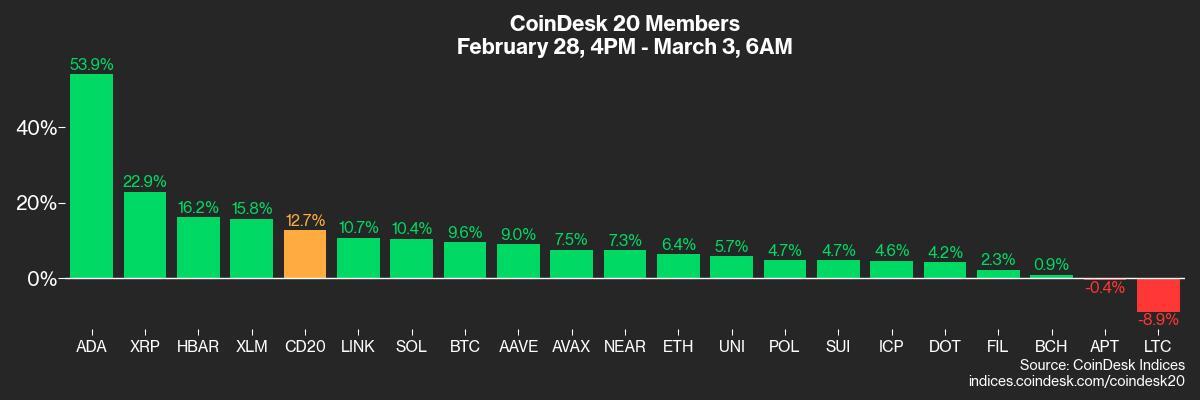
DXY is down 0.52% 107.06
Gold is up 0.44% at $2,871.94/oz
Silver is up 1.05% at $31.49/oz
Nikkei 225 closed +1.7% at 37,785.47
Hang Seng closed +0.28% at 23,006.27
FTSE is up 0.53% at 8,856.47
Euro Stoxx 50 is up 0.75% at 5,504.53
DJIA closed on Friday +1.39% at 43,840.91
S&P 500 closed +1.59% at 5,954.50
Nasdaq closed +1.63% at 18,847.28
S&P/TSX Composite Index closed +1.06% at 25,393.45
S&P 40 Latin America closed -2.07% at 2,298.92
U.S. 10-year Treasury rate is up 4 bps at 4.26%
E-mini S&P 500 futures are up 0.31% at 5,982.00
E-mini Nasdaq-100 futures are up 0.4% at 21,002.75
E-mini Dow Jones Industrial Average Index futures are up 0.22% at 43,984.00
Bitcoin Stats:
BTC Dominance: 61.37 (1.58%)
Ethereum to bitcoin ratio: 0.02548 (-4.64%)
Hashrate (seven-day moving average): 792 EH/s
Hashprice (spot): $49.9
Total Fees: 5.54 BTC / $490,522
CME Futures Open Interest: 430,806 BTC
BTC priced in gold: 32.4 oz
BTC vs gold market cap: 9.20%
Technical Analysis
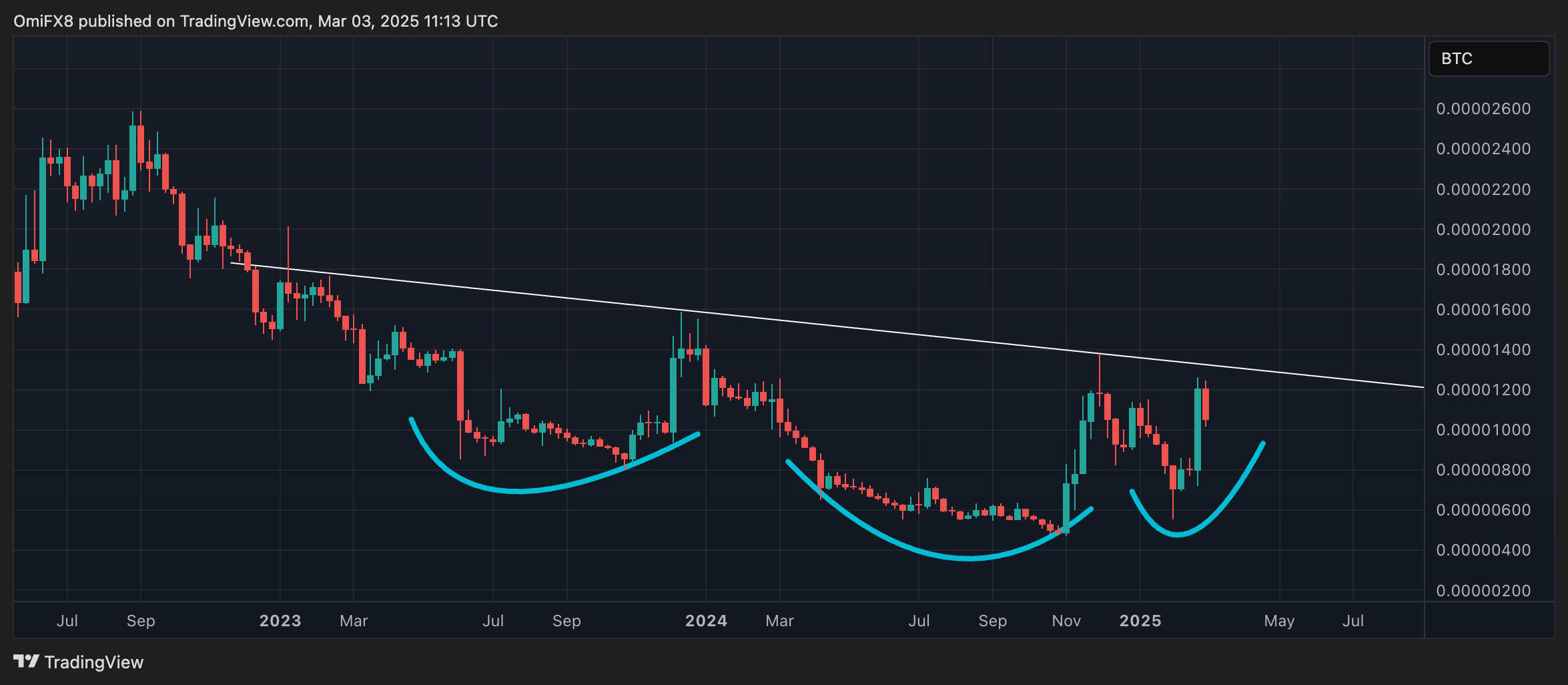
The cardano-bitcoin (ADA/BTC) ratio has formed a large inverse head-and-shoulders pattern.
A break above the trendline would confirm or trigger the pattern, signaling a bullish shift in sentiment.
Crypto Equities
MicroStrategy (MSTR): closed on Friday at $255.43 (+6.41%), up 12.85% at $288.24 in pre-market
Coinbase Global (COIN): closed at $215.62 (+3.48%), up 10.06% at $237.31
Galaxy Digital Holdings (GLXY): closed at C$21.53 (+6.16%)
MARA Holdings (MARA): closed at $13.92 (+6.02%), up 9.63% at $15.26
Riot Platforms (RIOT): closed at $9.28 (+7.16%), up 10.56% at $10.26
Core Scientific (CORZ): closed at $11.16 (+4.2%), up 5.11% at $11.73
CleanSpark (CLSK): closed at $7.99 (+6.39%), up 10.76% at $8.85
CoinShares Valkyrie Bitcoin Miners ETF (WGMI): closed at $17.82 (+5.51%), up 10.04% at $19.61
Semler Scientific (SMLR): closed at $42.92 (+5.64%), up 7.69% at $42.92
Exodus Movement (EXOD): closed unchanged at $42.20
ETF Flows
Spot BTC ETFs:
Daily net flow: $94.3 million
Cumulative net flows: $36.95 billion
Total BTC holdings ~ 1,133 million.
Spot ETH ETFs
Daily net flow: -$41.9 million
Cumulative net flows: $2.82 billion
Total ETH holdings ~ 3.652 million.
Source: Farside Investors
Overnight Flows
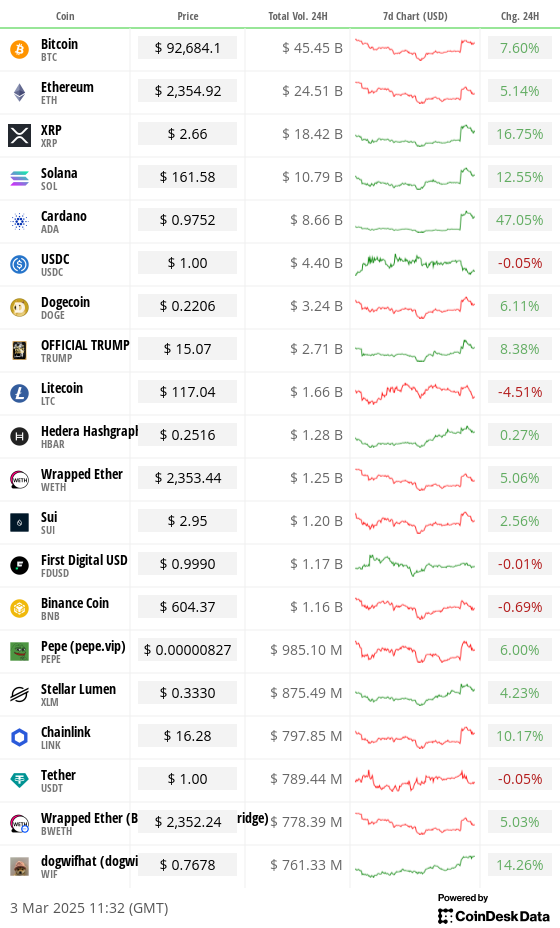
Chart of the Day
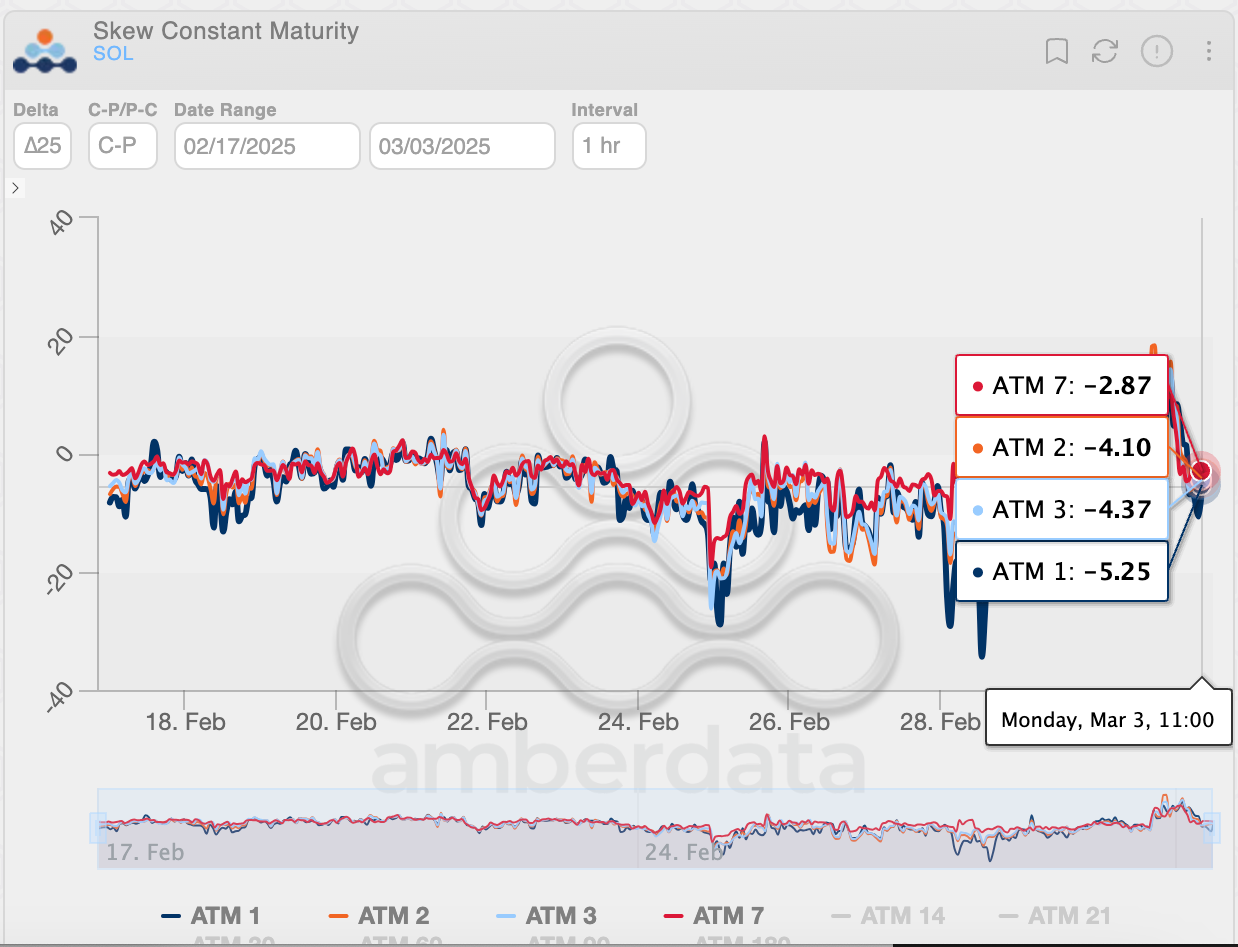
SOL’s short-term skews remain negative, showing a bias for protective puts, reflecting persistent fears of downside risks.
While You Were Sleeping
CME Bitcoin March Futures Gap Jumps By Over $9K (CoinDesk): Bitcoin’s spot price surge past $94,000 on Sunday created a $9,280 gap in March CME futures, which opened at $95,000 on Monday, up from Friday’s $85,720 high.
Bitcoin Rally to $93K Sees Bears Lose $550M in Big Sunday Liquidations (CoinDesk): Nearly $600M in bearish crypto bets were liquidated Sunday as Trump’s crypto reserve announcement fueled volatility, with open interest in XRP, ADA, and SOL futures jumping 40%.
Bitcoin $100K Plays Back in Vogue After 10% BTC Price Surge from ‘Trump Put’ (CoinDesk): President Trump’s call for a strategic crypto reserve has renewed interest in $100K BTC calls on Deribit, though some warn the plan could face significant hurdles.
ECB Rate Cuts Enter Final Stretch With Divisions Widening (Bloomberg): The ECB nears the end of its rate-cutting cycle, but policymakers are split between caution over inflation and calls for faster cuts amid trade uncertainty.
Starmer Announces ‘Coalition of the Willing’ to Guarantee Ukraine Peace (BBC News): U.K. Prime Minister Keir Starmer outlined a four-point plan for Ukraine: military aid, economic pressure on Russia, Ukraine’s role in peace talks, and a European-led effort to guarantee long-term security.
US Hints That Tariffs on Mexico and Canada Could Be Lower Than 25% (Financial Times): Trump’s Tuesday tariffs on Mexico and Canada remain in flux, as Commerce Secretary Howard Lutnick said Sunday that ongoing negotiations and fentanyl concerns could influence the final rates.
Chinese Buyers Are Ordering Nvidia’s Newest AI Chips, Defying U.S. Curbs (The Wall Street Journal): Chinese resellers are bypassing U.S. export curbs on Nvidia chips by using foreign-registered companies to buy servers from authorized Nvidia customers in Malaysia, Vietnam, and Taiwan.
In the Ether
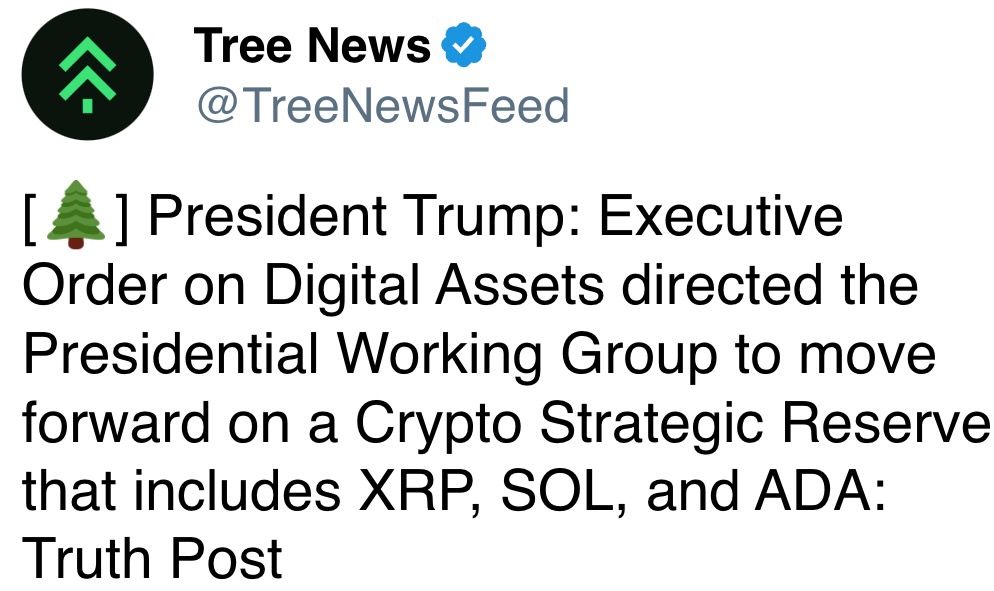
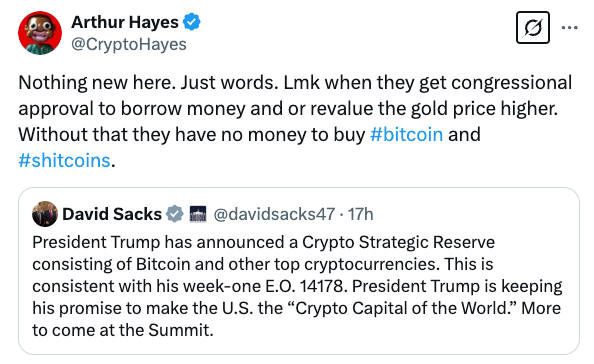
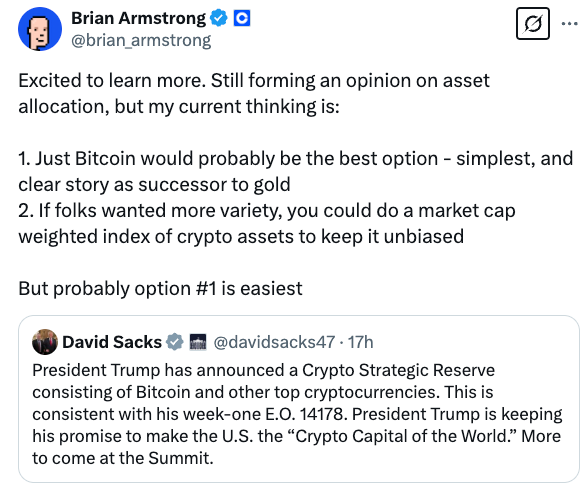
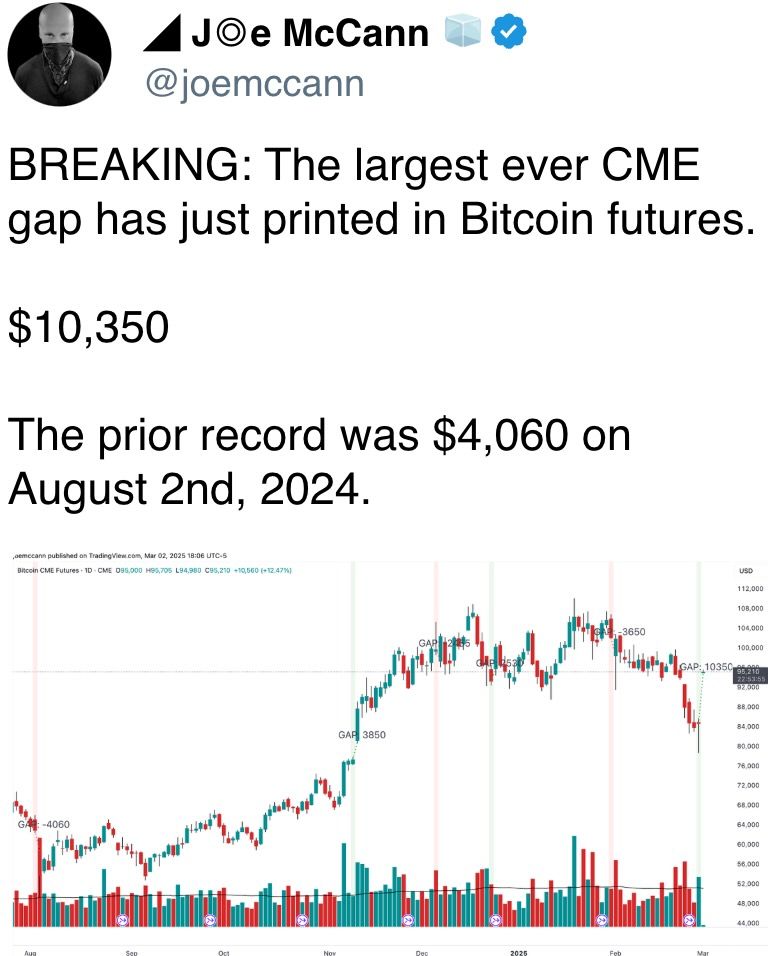
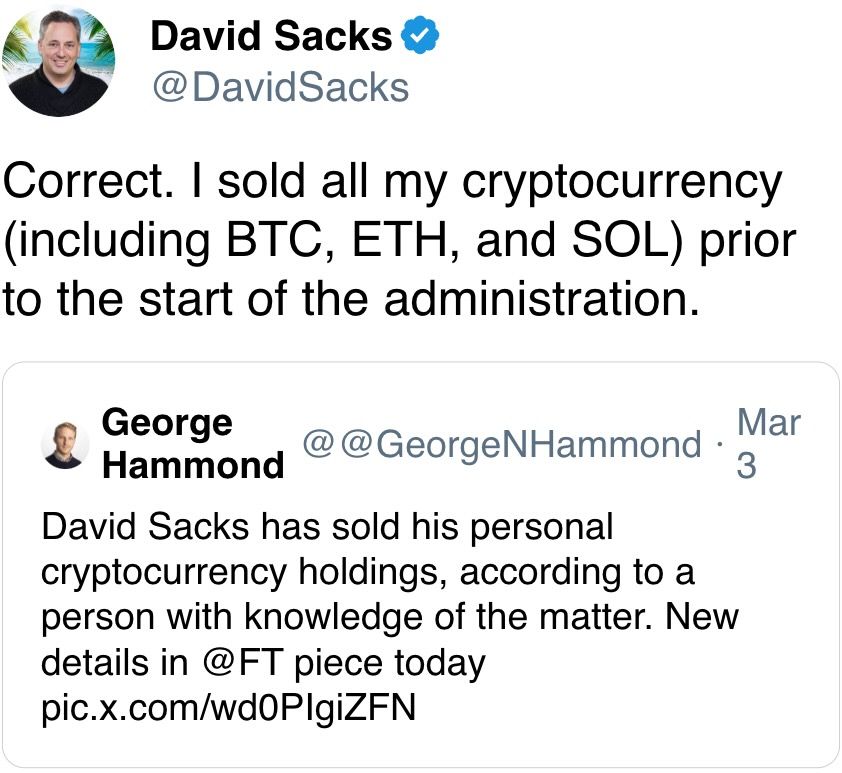
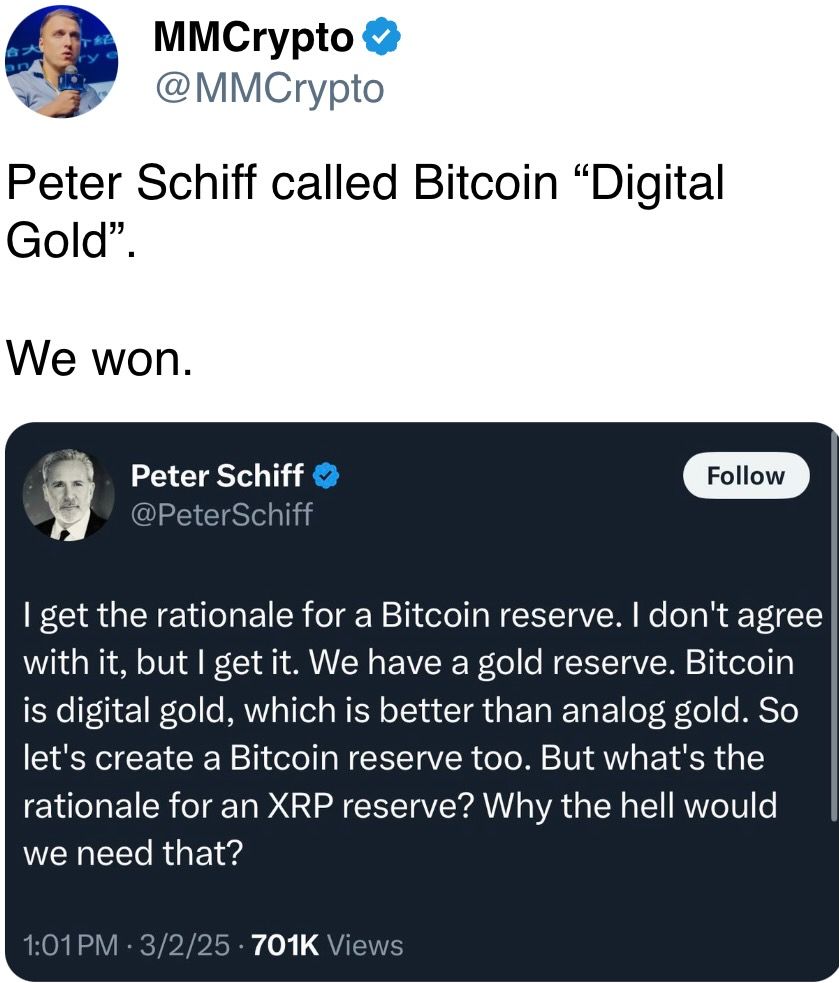
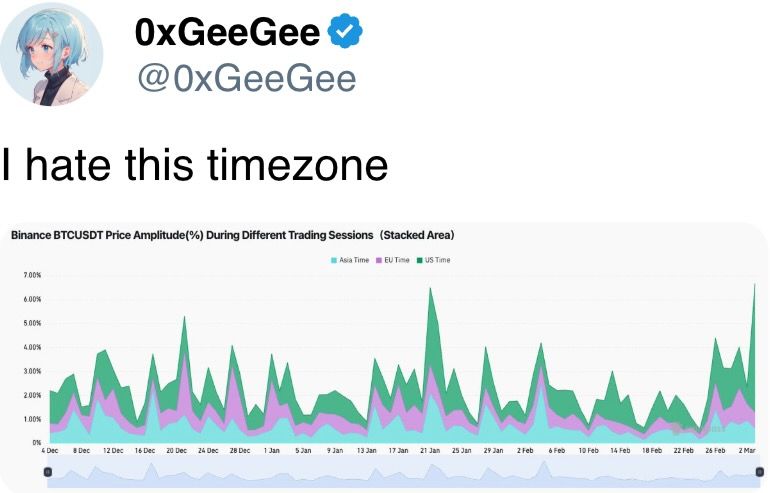
Uncategorized
Wall Street Bank Citigroup Sees Ether Falling to $4,300 by Year-End

Wall Street giant Citigroup (C) has launched new ether (ETH) forecasts, calling for $4,300 by year-end, which would be a decline from the current $4,515.
That’s the base case though. The bank’s full assessment is wide enough to drive an army regiment through, with the bull case being $6,400 and the bear case $2,200.
The bank analysts said network activity remains the key driver of ether’s value, but much of the recent growth has been on layer-2s, where value “pass-through” to Ethereum’s base layer is unclear.
Citi assumes just 30% of layer-2 activity contributes to ether’s valuation, putting current prices above its activity-based model, likely due to strong inflows and excitement around tokenization and stablecoins.
A layer 1 network is the base layer, or the underlying infrastructure of a blockchain. Layer 2 refers to a set of off-chain systems or separate blockchains built on top of layer 1s.
Exchange-traded fund (ETF) flows, though smaller than bitcoin’s (BTC), have a bigger price impact per dollar, but Citi expects them to remain limited given ether’s smaller market cap and lower visibility with new investors.
Macro factors are seen adding only modest support. With equities already near the bank’s S&P 500 6,600 target, the analysts do not expect major upside from risk assets.
Read more: Ether Bigger Beneficiary of Digital Asset Treasuries Than Bitcoin or Solana: StanChart
Uncategorized
XLM Sees Heavy Volatility as Institutional Selling Weighs on Price

Stellar’s XLM token endured sharp swings over the past 24 hours, tumbling 3% as institutional selling pressure dominated order books. The asset declined from $0.39 to $0.38 between September 14 at 15:00 and September 15 at 14:00, with trading volumes peaking at 101.32 million—nearly triple its 24-hour average. The heaviest liquidation struck during the morning hours of September 15, when XLM collapsed from $0.395 to $0.376 within two hours, establishing $0.395 as firm resistance while tentative support formed near $0.375.
Despite the broader downtrend, intraday action highlighted moments of resilience. From 13:15 to 14:14 on September 15, XLM staged a brief recovery, jumping from $0.378 to a session high of $0.383 before closing the hour at $0.380. Trading volume surged above 10 million units during this window, with 3.45 million changing hands in a single minute as bulls attempted to push past resistance. While sellers capped momentum, the consolidation zone around $0.380–$0.381 now represents a potential support base.
Market dynamics suggest distribution patterns consistent with institutional profit-taking. The persistent supply overhead has reinforced resistance at $0.395, where repeated rally attempts have failed, while the emergence of support near $0.375 reflects opportunistic buying during liquidation waves. For traders, the $0.375–$0.395 band has become the key battleground that will define near-term direction.
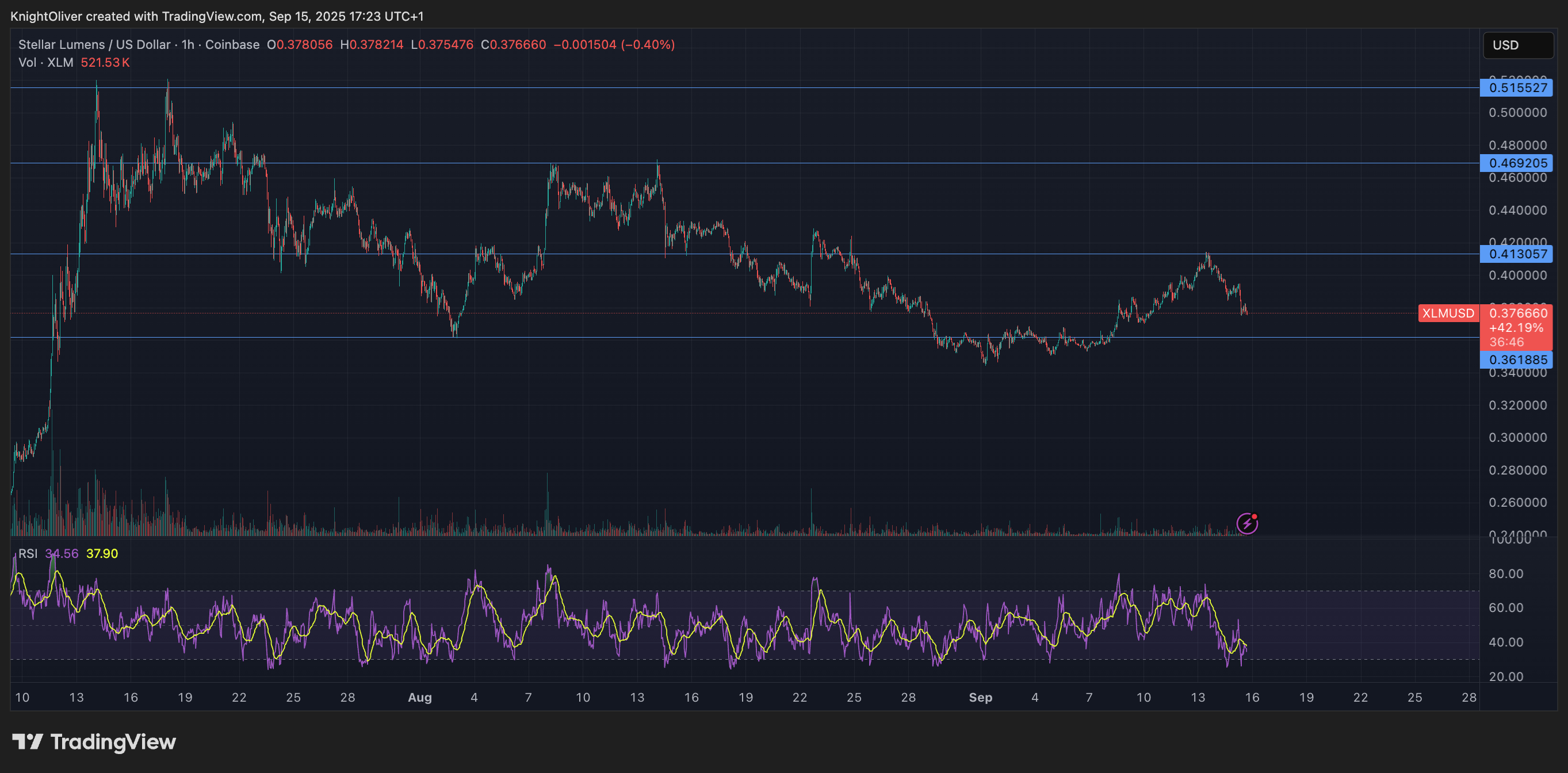
Technical Indicators
- XLM retreated 3% from $0.39 to $0.38 during the previous 24-hours from 14 September 15:00 to 15 September 14:00.
- Trading volume peaked at 101.32 million during the 08:00 hour, nearly triple the 24-hour average of 24.47 million.
- Strong resistance established around $0.395 level during morning selloff.
- Key support emerged near $0.375 where buying interest materialized.
- Price range of $0.019 representing 5% volatility between peak and trough.
- Recovery attempts reached $0.383 by 13:00 before encountering selling pressure.
- Consolidation pattern formed around $0.380-$0.381 zone suggesting new support level.
Disclaimer: Parts of this article were generated with the assistance from AI tools and reviewed by our editorial team to ensure accuracy and adherence to our standards. For more information, see CoinDesk’s full AI Policy.
Uncategorized
HBAR Tumbles 5% as Institutional Investors Trigger Mass Selloff

Hedera Hashgraph’s HBAR token endured steep losses over a volatile 24-hour window between September 14 and 15, falling 5% from $0.24 to $0.23. The token’s trading range expanded by $0.01 — a move often linked to outsized institutional activity — as heavy corporate selling overwhelmed support levels. The sharpest move came between 07:00 and 08:00 UTC on September 15, when concentrated liquidation drove prices lower after days of resistance around $0.24.
Institutional trading volumes surged during the session, with more than 126 million tokens changing hands on the morning of September 15 — nearly three times the norm for corporate flows. Market participants attributed the spike to portfolio rebalancing by large stakeholders, with enterprise adoption jitters and mounting regulatory scrutiny providing the backdrop for the selloff.
Recovery efforts briefly emerged during the final hour of trading, when corporate buyers tested the $0.24 level before retreating. Between 13:32 and 13:35 UTC, one accumulation push saw 2.47 million tokens deployed in an effort to establish a price floor. Still, buying momentum ultimately faltered, with HBAR settling back into support at $0.23.
The turbulence underscores the token’s vulnerability to institutional distribution events. Analysts point to the failed breakout above $0.24 as confirmation of fresh resistance, with $0.23 now serving as the critical support zone. The surge in volume suggests major corporate participants are repositioning ahead of regulatory shifts, leaving HBAR’s near-term outlook dependent on whether enterprise buyers can mount sustained defenses above key support.
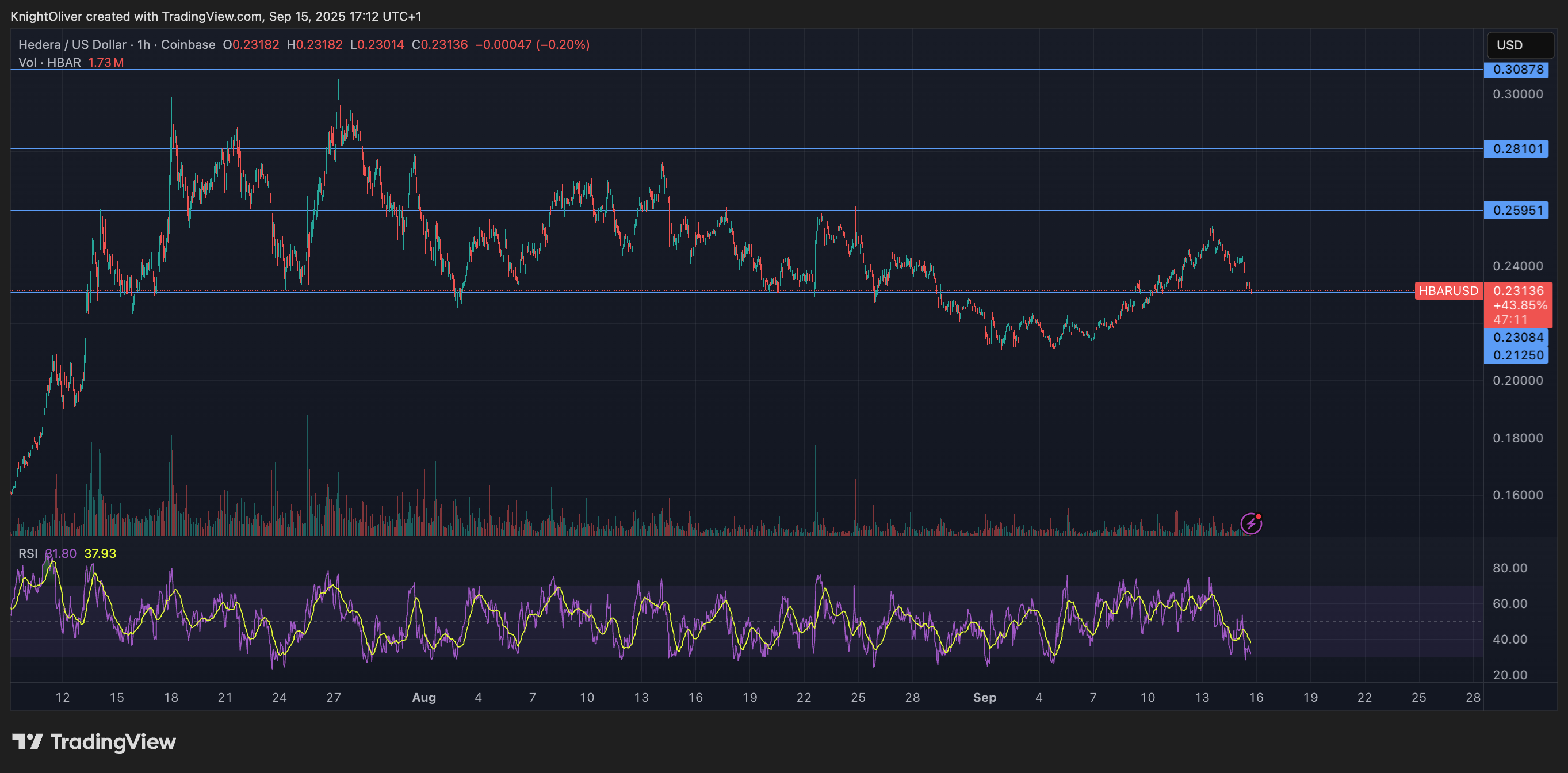
Technical Indicators Summary
- Corporate resistance levels crystallized at $0.24 where institutional selling pressure consistently overwhelmed enterprise buying interest across multiple trading sessions.
- Institutional support structures emerged around $0.23 levels where corporate buying programs have systematically absorbed selling pressure from retail and smaller institutional participants.
- The unprecedented trading volume surge to 126.38 million tokens during the 08:00 morning session reflects enterprise-scale distribution strategies that overwhelmed corporate demand across major trading platforms.
- Subsequent institutional momentum proved unsustainable as systematic selling pressure resumed between 13:37-13:44, driving corporate participants back toward $0.23 support zones with sustained volumes exceeding 1 million tokens, indicating ongoing institutional distribution.
- Final trading periods exhibited diminishing corporate activity with zero recorded volume between 13:13-14:14, suggesting institutional participants adopted defensive positioning strategies as HBAR consolidated at $0.23 amid enterprise uncertainty.
Disclaimer: Parts of this article were generated with the assistance from AI tools and reviewed by our editorial team to ensure accuracy and adherence to our standards. For more information, see CoinDesk’s full AI Policy.
-

 Business11 месяцев ago
Business11 месяцев ago3 Ways to make your business presentation more relatable
-

 Fashion11 месяцев ago
Fashion11 месяцев agoAccording to Dior Couture, this taboo fashion accessory is back
-

 Entertainment11 месяцев ago
Entertainment11 месяцев ago10 Artists who retired from music and made a comeback
-

 Entertainment11 месяцев ago
Entertainment11 месяцев ago\’Better Call Saul\’ has been renewed for a fourth season
-

 Entertainment11 месяцев ago
Entertainment11 месяцев agoNew Season 8 Walking Dead trailer flashes forward in time
-

 Business11 месяцев ago
Business11 месяцев ago15 Habits that could be hurting your business relationships
-

 Entertainment11 месяцев ago
Entertainment11 месяцев agoMeet Superman\’s grandfather in new trailer for Krypton
-

 Entertainment11 месяцев ago
Entertainment11 месяцев agoDisney\’s live-action Aladdin finally finds its stars





